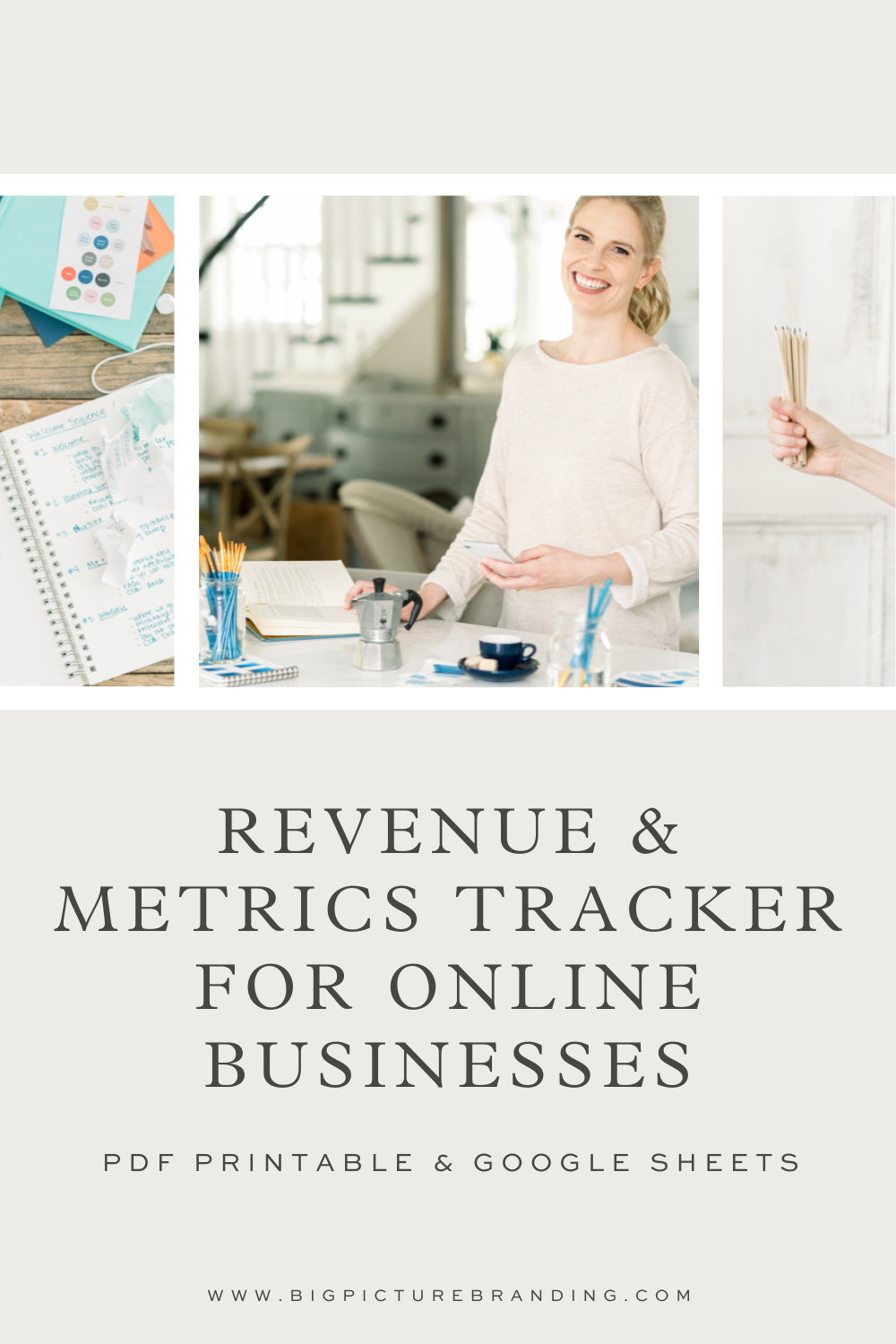If you, like me, decided every thought you had in December was actually a January problem, the good news is, you’re going to be just fine.
You don’t need to go into a business retreat mode to set your business priorities for the year ahead. In fact, assigning too much weight and importance to an activity can actually cause more procrastination and anxiety.
Setting your business goals and finding a way to track your metrics doesn’t need to involve complex spreadsheets, deep journaling, or a productivity software subscription.
👉 You simply need a tool that gives you a high-level snapshot of where you’re making your money and metrics and where you’re falling short.
But when I set out to find a downloadable income and stats tracker for my business everything looked like I needed an MBA graduate degree and a tax accountant present to fill in the details.
So, like every good DIY creative business owner, I cleared off my whiteboard and created my own Dead Simple Income & Stats Tracker.
For the entirety of the year, this thing sat directly across from my desk. Every time I signed a new client or made a new batch of sales I’d jump up, dry-erase marker and calculator in hand to update my numbers and see how much closer I was to my yearly goals.
Sure, I could have made it a spreadsheet, but I needed to see it to believe it.
🙌 And you know what happened? I ended up +37% above my yearly goal!
What are the benefits of tracking your metrics?
The online business world is kind of the wild West. There is no one singular playbook, there are millions of playbooks and eager gurus ready to sell you on their systems and processes.
I love a good framework, but the only way to cut through the noise and figure out what’s truly working for you and your business is to figure out what matters to you at the end of the day and whether or not your activities (marketing, sales, PR) are moving you toward your goals.
Additional food for thought: A Censuswide survey found that small to mid-sized businesses that set goals and track their metrics were up to 2X as likely to hit their targets than businesses that didn’t.
Further reasons to set and track goals include:
-
Ability to make data-driven decisions instead of unreliable or biased assumptions.
-
Opportunity to align your employees, contractors, or team members around a common set of goals.
-
Clarity around which KPIs (key performance indicators) do and do not matter to your business.
-
More efficient investment and resources into activities and tactics that truly matter, versus the vanity metrics that just look good.
Which metrics should online businesses track?
This truly depends on your goals and business model. The oft-quoted S.M.A.R.T. goals are a good place to start. (Every goal should be Specific, Measurable, Achievable, Relevant, and Time-Based.)
Some common metrics to consider are:
-
Revenue
-
Profit
-
Leads vs. qualified leads
-
Returning and new clients
-
Customer conversion rates
-
Opt-in conversion rates
-
Customer acquisition costs (if running ads)
-
Upsell or bump conversion rates
-
Drop-off rates
-
Website users
-
Website sessions
-
Time on site
-
Pages per session
-
Social media followers and engagement
-
Social media to sales conversions
-
Email newsletter subscribers
-
Click-through rates and Click-to-open rates
-
Deliverability
-
Email to sales conversion rates
-
Podcast Downloads
-
Average customer lifetime and value
-
Affiliate sales and conversion rates
Which metrics do online businesses forget to track?
It’s an open secret that starting your own business often coincides with longer working hours and blurry work/life boundaries. Even if you’re in love with the work you do, it’s important to find balance. You are a complex human being whose identity is so much more than your work. Saying yes to only your work commitments and goals means saying no to your friends, family, and your own self-development. This is how we, as multi-passionate entrepreneurs, end up burned out, even though we’re doing the work that we love. (I’m in the same boat and I see you, friend.)
I HIGHLY suggest setting and tracking a few of the following:
-
Vacation days
-
Mental health/rest days
-
Weekends worked
-
New hobbies tried
-
Education/courses taken related to business
-
Education/courses taken unrelated to business
-
Books read/date nights/game nights/girl’s nights
How often should you check your metrics and goal tracking?
The American Psychological Society found that individuals who frequently check in on their progress toward a goal were more likely to succeed. But hyper-focusing on the data is a creativity killer that can quash innovation. You want to make a routine of it that informs your decision-making without giving you tunnel vision. Unless you’re launching new offerings and products frequently, monthly check-ins are a great place to start.
Grab my Dead Simple Revenue & Stats Tracker!
Customize it. Print it. Copy it onto a whiteboard. Put it somewhere you will see every day.
(And okay, fine, I turned it into a spreadsheet in case that’s your jam.)
PIN TO SAVE FOR LATER

